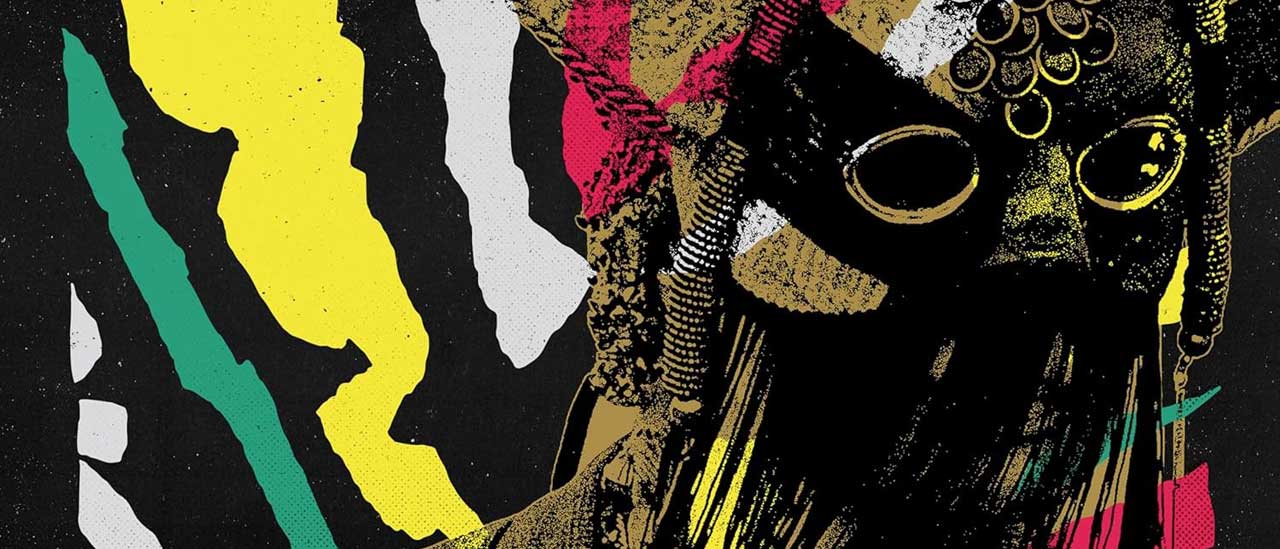The ‘ouroboros’ that gives its title to the final track on Goat’s sixth album – a seven-minute wah-wah rave, full of ghostly horns, background babble and a wailing entreaty to find God inside yourself – is a circular symbol of a snake or dragon eating its own tail, signifying the eternal cycle of death and rebirth. Very Goat, then, and an image that could have been designed as their band logo.
You only have to listen to album opener One More Death, with its polyrhythmic Led Zeppelin riffs, bone-shaking percussion and Eastern souk vibes to recognise their art in deconstructing classic rock and psychedelia and resurrecting it as something vital and alive. Particularly when the track explodes into a brilliantly unhinged buzz-saw guitar freakout halfway through, as if the spirit of Jimi Hendrix has leapt from the campfire and possessed Goat’s unnamed guitarist (all of the band remain masked and anonymous).
The self-title is telling here too. After venturing into folkier territory on last year’s Medicine, and soundtrack textures for Shane Meadows’ The Gallows Pole, Goat acts as a cyclical return to the mysterious Swedish collective’s pagan world-rock roots. Frisco Beaver is intended to be a bongo-funk sequel to Disco Fever from 2012’s debut album World Music, now with added one-finger synth solo, while Dollar Bill revisits their trademark retro funk workouts, only to revitalise the form with a stunning display of fractured psych guitar.
The female singer’s wailing vocal chants, more call to prayer than hookline, cover a typically new-age range of topics – love the eternal human! Be the spark of your own fiery rebirth! Down with evil breadheads! – and maintain their atmosphere of a funk jam at the ancient ceremonial after-party.
But not everything here is Goat by rote; more pathways leading off their mystical glade are explored. Goatbrain could be intended as an amalgam of Goat’s culture-spanning idealism and Funkadelic’s Maggot Brain, its lopsided funk laced with undergrowth rhythms, reggae horns and wasp-like talk-box guitar. Atmospheric interlude Fool’s Journey ventures further east than ever, boasting Japanese pipes and percussion. Zombie indulges their hip-hop leanings, in the cranky, lumbering, deep dub manner favoured by early Gorillaz. The All is One, a folk throwback to Medicine, could be Pink Floyd’s Wish You Were Here, if ‘here’ was springtime on Venus.
Goat’s ouroboros cycle repeats, with added bite.



